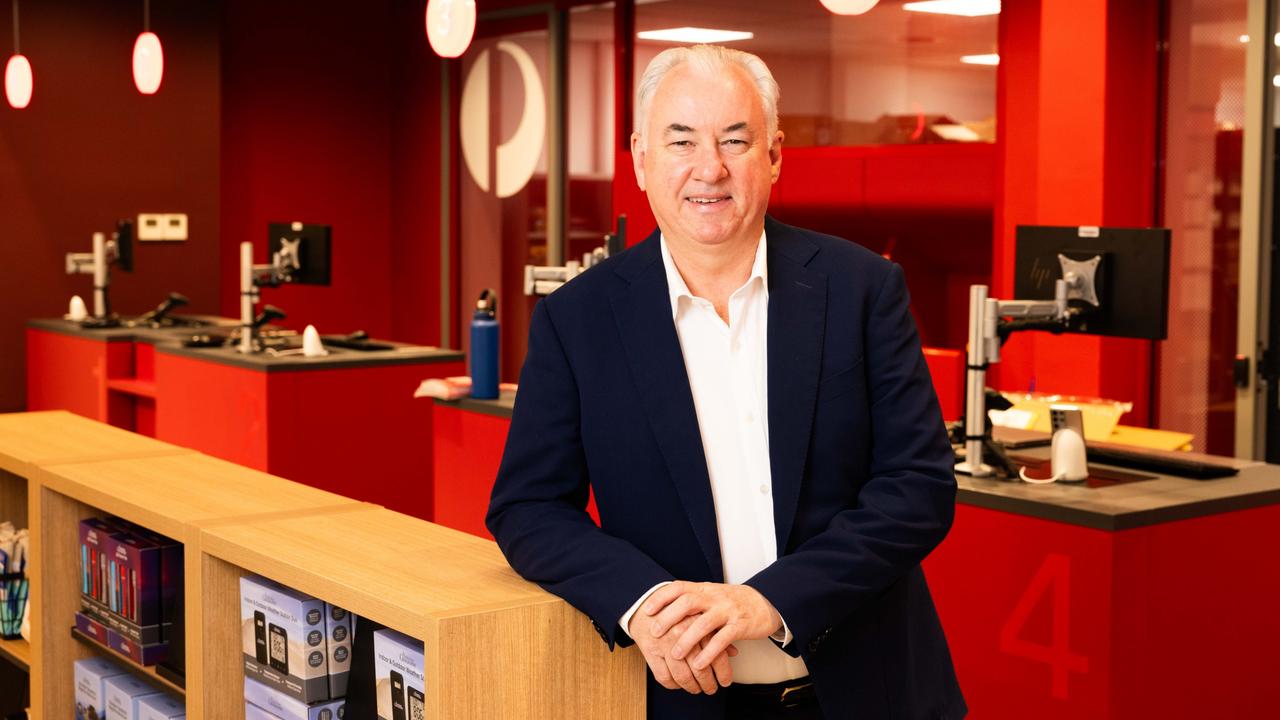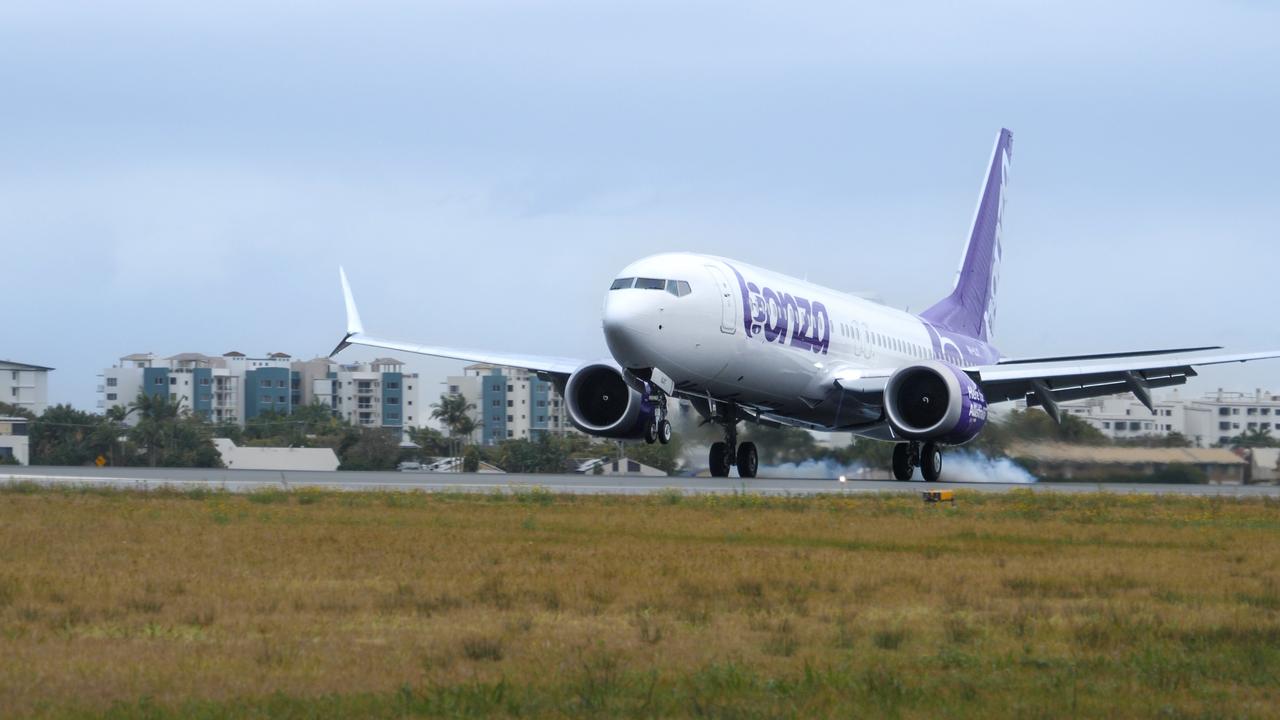High price of flexibility for corporate airline travellers
Corporate travellers put such high value on flexibility that they’re paying up to five times more for a flex fare than a ticket that doesn’t allow flight changes.
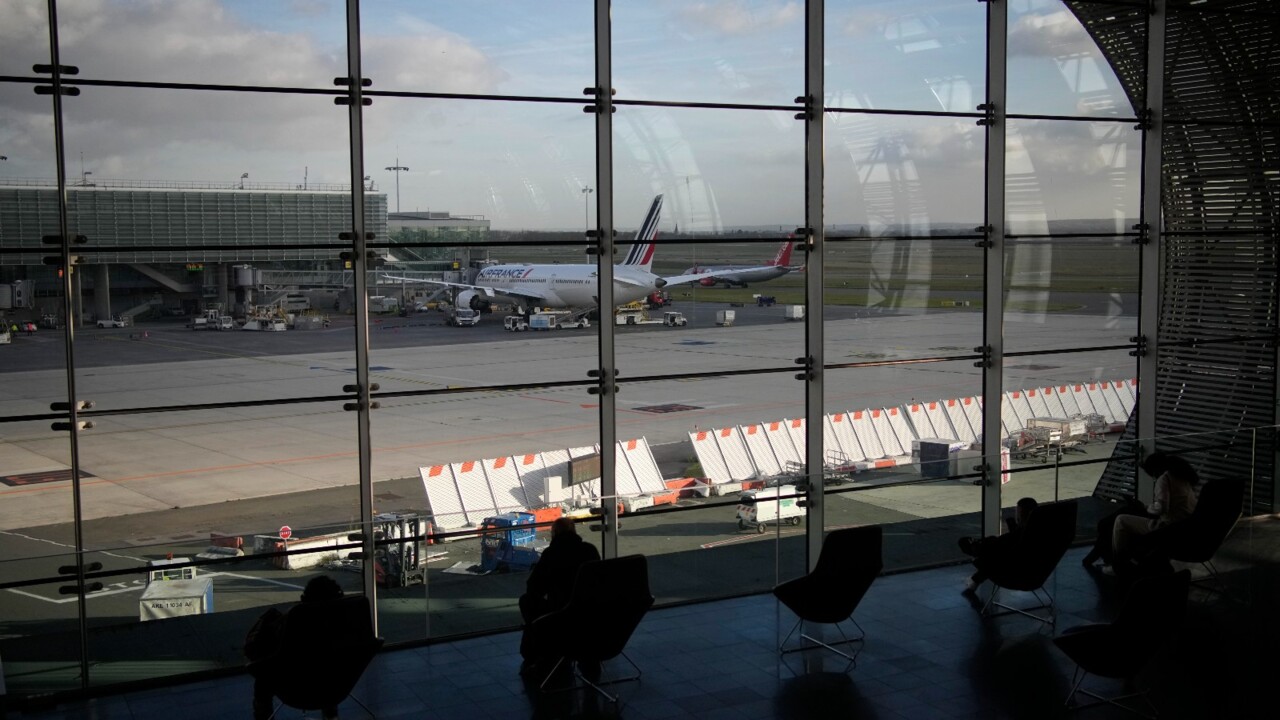
Business
Don't miss out on the headlines from Business. Followed categories will be added to My News.
Corporate travellers are paying up to five times the cost of normal airfares for flexibility, which airlines justify by the “value and benefits” that those fares provide.
Flight Centre data shared exclusively with The Australian showed more than half of corporate clients requested flex fares for the convenience of being able to change flights as required.
Unlike basic fares, which incurred a fee for changes, flex fares offered the ability to change flights right up to the day of departure, as well as extra frequent-flyer points and status credits.
But passengers were paying a high price for the privilege, with both Qantas and Virgin Australia charging large sums for flex fares on popular “Golden Triangle” (Sydney-Melbourne-Brisbane) routes, and in some cases more than business class.
A Melbourne to Sydney flight with Qantas on July 22 cost $180 for an inflexible “red e-deal” fare and $670 for a flex fare, while business class was “on sale” for $599.
On the same route, Virgin Australia charged $90 for a “lite” fare and $469 for flexibility and only $32 more ($501) for business.
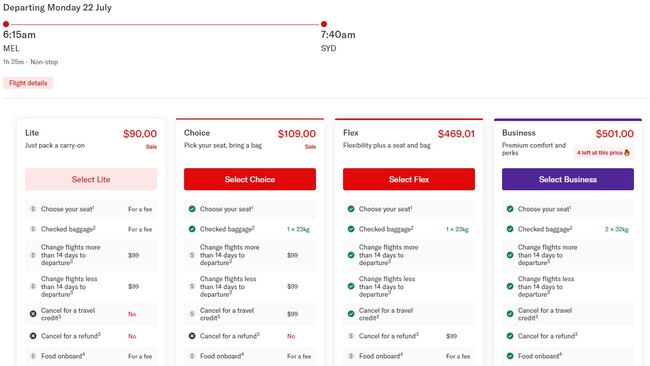
On Melbourne-Brisbane, Qantas charged $236 for an inflexible fare, and $750 for flexibility, while Virgin Australia’s fares started at $109, climbing to $480 for flex.
Despite the extraordinary difference in price, Flight Centre Corporate managing director Melissa Elf said that, for many business travellers, flexibility was critical and they were willing to pay for the ability to change their travel arrangements.
“We know productivity and flexibility in travel booking is just as important as the cost of travel,” Ms Elf said. “We know this because more than half of our customers’ bookings are rebooked or rescheduled; agility in travel management is essential.”
She said time was the most valuable asset for those travelling for business, and “a minute wasted was money lost”.
“With more and more corporate travellers taking to the skies, it’s a real priority that we’re ensuring flexibility and access in a way that’s productive and affordable for our customers,” Ms Elf said.
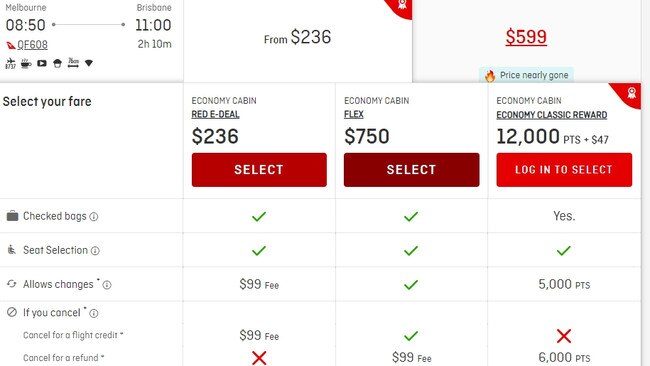
Qantas pointed out that its flex fares allowed for changes and refunds right up to departure, whereas red e-deal fares required a $99 fee for changes and travellers could not make changes to their flight on the day of departure.
All fares included checked luggage, on-board wi-fi and food and beverage.
“We often see business travellers opting for a cheaper fare for the flight to a meeting, and then a flexible fare on the way home in case meetings finish earlier or are delayed,” a Qantas spokeswoman said.
In Virgin Australia’s case, fully flex fares included seat selection, checked baggage and multiple changes to flights without a fee, as well as extra Velocity points and status credits.
Flex passengers could cancel the flight for a travel credit, but a refund cost $99 extra.
Customers travelling on “lite” fares were charged extra for seat selection and checked bags, and $99 every time they sought to change the flight. The fare was also ineligible for a flight credit or refund if the passenger cancelled.
“We often see corporate customers selecting a flex option even when other ticket options are available,” a Virgin Australia spokeswoman said.
Flight Centre noted that corporate travel in Australia was dominated by the mining, oil and gas sector, which made up about 14 per cent of all travel bookings in the first quarter of 2024. That was followed by construction at 10 per cent, government and not-for-profit (8.5 per cent) and finance and insurance (6 per cent).
“It’s evident across our corporate customer base that travel is non-discretionary, and falling airfares both domestically and internationally will keep demand for business travel strong,” Ms Elf said.
More Coverage
Originally published as High price of flexibility for corporate airline travellers




